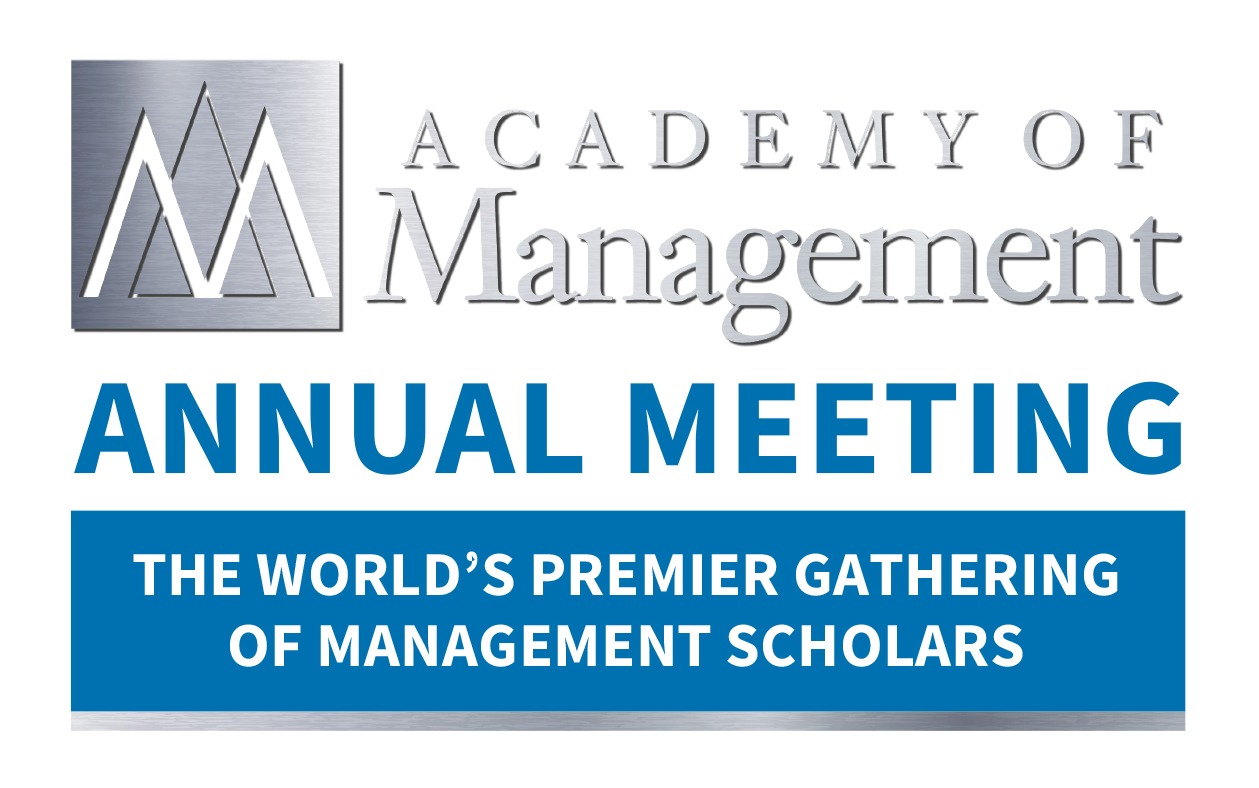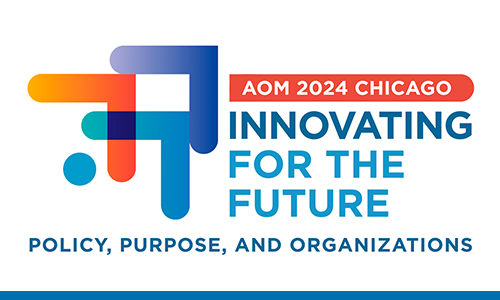Reviewer Guidelines
Thank you for your interest in signing up to be a reviewer for the Annual Meeting of the Academy of Management. We would like to thank those of you who have reviewed in the past and welcome those of you who are new to reviewing. We encourage you to take the guidelines to heart as the quality of the Annual Meeting Program is based upon the reviews you provide for the Division and Interest Group (DIG) Program Chairs and the Teaching and Learning Conference. Thank you in advance for the service you are willing to offer as a reviewer. The Reviewer Center opens in early December.
Please note that Artificial Intelligence (AI) tools may NOT be used as a resource in reviewing submissions.
Setting the Tone of the Review
Please keep your comments constructive. If the problems that you identify cannot be fixed, try to provide the author(s) with constructive ideas for how they might improve upon their submission as they develop their research. It is also important to try to identify the strengths of a manuscript to help the author(s) improve their work. One of the greatest services that DIG reviewers perform is the development of the research of members who submit their work. Identify areas of weakness in a manuscript, but also provide specific guidance on how the authors might address the limitations you have noted. The more specificity you provide in your review, the more likely it is that the authors will benefit from your efforts.
Authors deserve to be treated with respect, regardless of your evaluation of their work. Remember, you are representing a particular DIG with your review and ultimately the AOM. Please try to be open-minded to different authors using different theoretical frameworks. Try to judge manuscripts based on how well they stimulate thinking and discussion. Also, keep in mind that many AOM members come from disciplinary backgrounds and research traditions with diverse theoretical and methodological orientations.
Review Format
You must submit your review within the timelines provided. There is no slack in the program schedule. Provide a structured review by separating and numbering comments. Also, where appropriate, cite specific page numbers, passages, tables, and figures in your review. If you are uncertain about your comments in terms of some aspects of your review, please do your best to determine the accuracy of your position. Remember that inaccuracies in your review reflect on the DIG you are reviewing for as well as on AOM. Do not provide information in your review that reveals your identity and, for papers, do not seek to discover the identity of the authors. This protects the integrity of the "double-blind" review process for papers and the single-blind review process for symposia. A good review is typically 1 single-spaced page in length.
General Areas to Cover
In addition to commenting on the theoretical development of a submission and the technical correctness of the methodology, you should also consider the overall value-added contribution the submission offers. Does the submission pass the “so what” test? Also, consider whether the submission has any practical value, and comment on its implications for the practice community.
Symposium Review Questions to Ask
- Does the proposal reflect the overall level of quality an audience would expect when attending a symposium?
- Would the proposed session be of interest to enough DIG members and other AOM members to warrant space on the program?
- Does the proposal offer sufficient innovation and contribution to warrant space on the program?
Specific Areas to Consider
The following points are some suggested criteria that might help you structure your evaluations of the paper submissions you are reviewing.
Introduction
- Does the paper address an issue of interest to one or more communities of scholars studying organizations and management?
- Is there a clear research question, with a solid motivation behind it?
- Is the research question interesting?
- Does the research question hold promise for extending the relevant theoretical conversation?
- After reading the introduction, did you find yourself motivated to read further?
General
- Is the submission easy to read and follow?
- Are the different components of the submission coherent with one another?
- Do you have constructive ideas that may help the authors develop their work further?
Theory and Theoretical Concepts
- Does the submission contain a clear, well-developed, and articulated theoretical framework / approach? If it combines several theoretical approaches, is the relation between the approaches clear?
- Are the key theoretical concepts clearly defined and consistently used?
- Is the logic behind the hypotheses persuasive?
- Is extant literature appropriately reflected in the submission, or are critical references missing?
- Do the hypotheses or propositions logically flow from the theory?
Method (empirical papers)
- Are the research design, case selection, sample, and other aspects of the methods explained and justified? Are the phenomena of interest captured well?
- Are the sample and variables appropriate for the hypotheses?
- Are the data collected in an appropriate, transparent, and well justified manner consistent with the analytical technique(s) applied?
- Does the study have internal and external validity?
- Are the analytical techniques and procedures appropriate for answering the research question and consistent with the theory and the data collection?
- Is the analysis transparent, justified, and convincing?
Findings (empirical papers)
- Are the results reported in an understandable way?
- Do the findings offer a compelling, plausible, and consistent interpretation of data?
- Do the authors present an analytic generalization of the findings that is novel and transferable to other settings, and that engages with extant theoretical insights?
- Do the authors discuss the limitations of their work and show reflexivity about possible alternative explanations and analytical orientations?
- Are there alternative explanations for the results, and if so, are these adequately controlled for in the analyses?
Line of Argument (conceptual papers)
- Is the conceptual argumentation clear, logical, and convincing?
- Is the reasoning precise, concise, and elegant?
Findings (conceptual papers)
- Does the submission provide novel conceptual insights that are clearly spelled out and carefully positioned in relation to established ideas in the literature?
- Do the authors discuss the scope of the novel insights?
Contribution
- Does the submission make a value-added contribution to existing research?
- Does the submission stimulate thought or debate?
- Do the authors discuss the implications of the work for the scientific and/or practice community?
- Does the submission have implications for relevant stakeholders, such as organizational members, managers, policy makers, and members of the broader society?
- Does the submission produce novel insights, interpretations, or explanations that extend the literature?
Acknowledgements
These guidelines were originally adapted from the Organizational Behavior (OB) Division Reviewer Guidelines which were themselves adapted from reviewer guidelines developed by Catherine Daily and Albert A. Cannella Jr. for the Strategic Management (STR) Division, formerly known as the Business Policy and Strategy (BPS) Division, and for use in an STR Professional Development Workshop on reviewing sponsored by the Academy of Management Review (AMR) and the Academy of Management Journal (AMJ). Don Bergh, Javier Gimeno, Bruce Avolio, and David Ketchen also contributed to the revision of these guidelines.
Further enhancements to these guidelines were provided by the Organization and Management Theory (OMT) Division in view of expanding their applicability to encompass quantitative, qualitative, and conceptual papers. Tammar Zilber, Renate Meyer, Silviya Svejenova, Joep Cornelissen, Martin Kilduff, Markus Höllerer, David Seidl, Marc-David Seidel, Forrest Briscoe, and Eva Boxenbaum contributed to this revision.
We would like to thank the STR, OB, and OMT Divisions for their willingness to share these reviewer guidelines for the benefit of everyone.
 85th Annual Meeting of the Academy of Management
85th Annual Meeting of the Academy of Management
(AOM 2025)
25-29 July 2025
Copenhagen, Denmark
Key Dates
- Submission Center Opens:
Early December 2024 - Reviewer Signup Opens:
Early December 2024 - Submission Deadline:
7 January 2025
17:00 ET (GMT-5/UTC-5) - Review Period:
16 January-13 February 2025 - Housing Opens:
Late January 2025 - Registration Opens:
Early March 2025 - Decision Notifications:
Late March 2025 - Program Available:
June 2025 - 85th Annual Meeting:
In-person
25-29 July 2025
Copenhagen, Denmark
